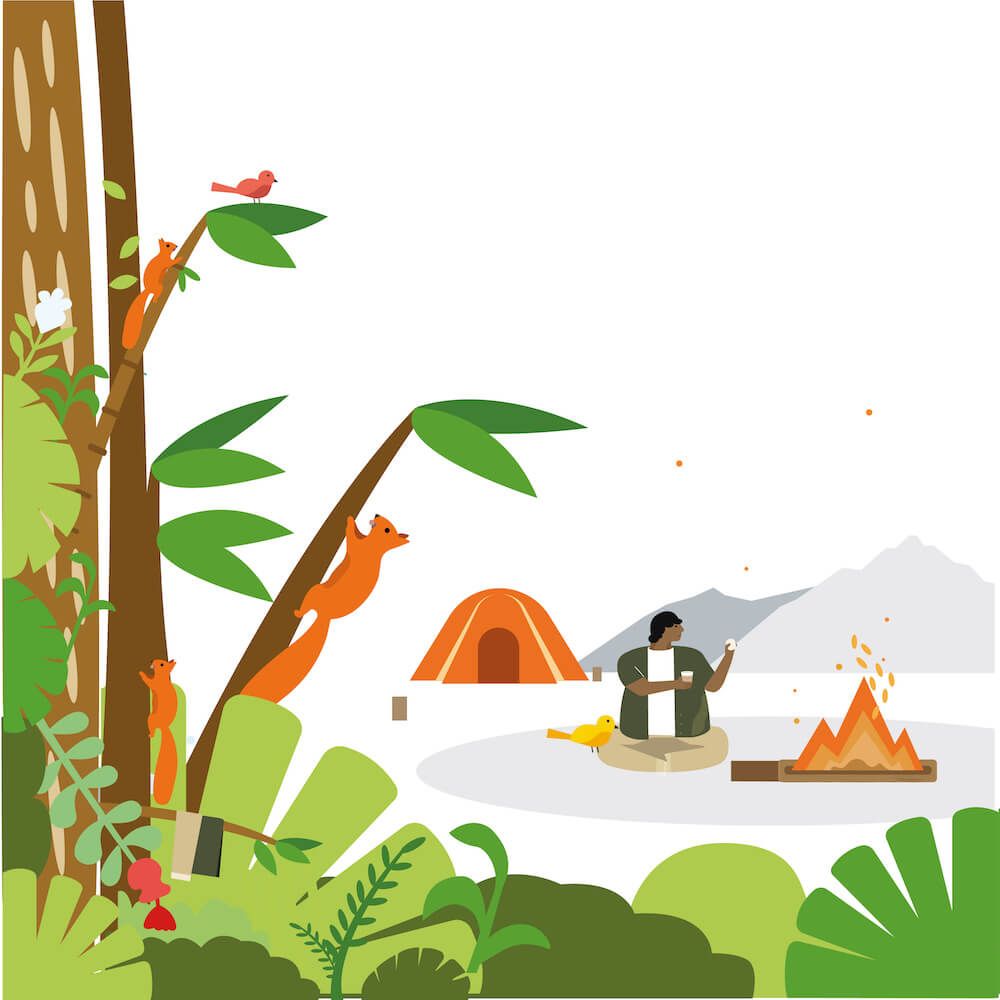For many people across the Scandinavian countries, getting in touch with nature is a value that shapes their lives and their wellbeing. So why does it have such a profound effect on our mental health?
Do you ever walk outside, take a deep breath, and instantly feel soothed? There’s a gentle breeze hitting your cheeks, the air feels fresh, and you can hear the sounds of the natural world meandering slowly around you.
There’s something special about being outside, and – after months in lockdown – an appreciation for nature is something that a lot of us will be able to relate to at the moment.
You may have taken up a daily walk, strolling through your home town, or wandering off-track into the wilderness. Or perhaps you’ve been able to spend more time in the garden, pottering around or simply sitting back and relaxing. Whatever it may be, lockdown has taught many of us about the value of spending time outdoors, not just for exercise or for travel, but as an activity that gets to the core of our wellbeing, soothing and invigorating us.
The Norwegians know all about that sentiment. Loosely translated, friluftsliv is the Nordic value of ‘open-air living’. First coined in 1859 by writer Henrik Ibsen, when describing the benefit of spending time in remote natural places, it’s an acknowledgment of the fantastical effect that the outside world can have on our mental health.

Friluftsliv is all about slipping seamlessly into outdoor life, and today in Sweden, Norway, and Denmark, the values are ingrained in the culture – with Statistics Sweden revealing that one-third of Swedes take part in outdoor activities at least once a week, Scandinavian employers offering incentives for staff to spend time outdoors, and a 2014 study showing that eight in 10 Norwegian adults had been for a hike in the woods or mountains in the previous 12 months.
“Nature has wonderful health-promoting properties: reducing the stress hormone cortisol, heart rate, depression, anxiety, and frustration – while increasing meditative feelings, love, and empathy,” explains Beth Collier, a nature-allied psychotherapist and ethnographer, who teaches woodland living skills and natural history. “This means that, without having to do anything other than be in the space, we feel calmer, relaxed, uplifted, energised, and rejuvenated, which can lead to a sense of belonging – all conducive to being reflective, in the moment, and feeling emotionally safe.”
This connection with nature is something that Beth can speak to personally, having grown up on a smallholding in Suffolk, where her childhood was consumed with roaming the woods, fens, and fields surrounding her home. For Beth, spending time outside was second-nature, and she’s joined by the 62% of British people who visit nature at least once a week.
At its core, friluftsliv is about taking time to be mindful of the world around us, reflect on the natural habitat that we’re in, and soak in the surroundings – and that’s as much about everyday connections as it is outdoor adventures. Along these lines, for Beth, it was only natural that her work as a psychotherapist and her love of the outdoors would lead her to take her counselling sessions outside.

“Knowing nature’s capacity to positively impact emotional health, I’d therefore question why I’d chosen to be in a room,” reflects Beth. “We can overlook the importance of our connection to the natural world on our current wellbeing, and within our formative experiences. The state of our relationship with nature will affect our sense of wellbeing, just as the type of relationship we have with parents, siblings, and colleagues will too.
“Nature isn’t just a location but is a co-counsellor, offering reflections and mirrors about our emotional world. Clients often experience the work becoming deeper sooner, and feel more supported in processing uncomfortable feelings. The therapeutic relationship with nature lasts beyond the work finishing with the human therapist.”
But while an experience with nature can be incredibly profound and therapeutic, you don’t necessarily have to live in the wilderness to harness it. You may swap your morning commute for a bike ride, or use an hour in the evening that you may have usually spent curled up on the sofa, popping out for a short walk.
Friluftsliv captures the profound moments where we feel a strong connection with the world around us – when our lungs are burning from an uphill hike, but also when we open a window and let the summer breeze float into our homes. You may go running, kayaking, and cycling, or foraging, camping, and picnicking. However you do it, in whatever way works for you, there are lessons to be learned and comfort to be found in the great outdoors.
For more nature-related content, including how ecotherapy can be the key to a healthy mindset and the benefits of forest bathing, pick up the August issue of Happiful in our shop now, or subscribe to read for free online.


Comments